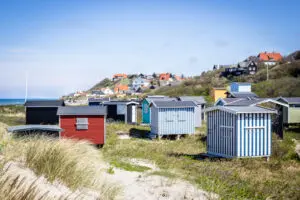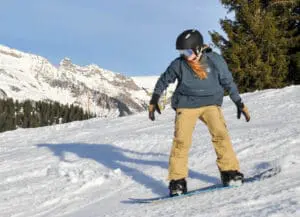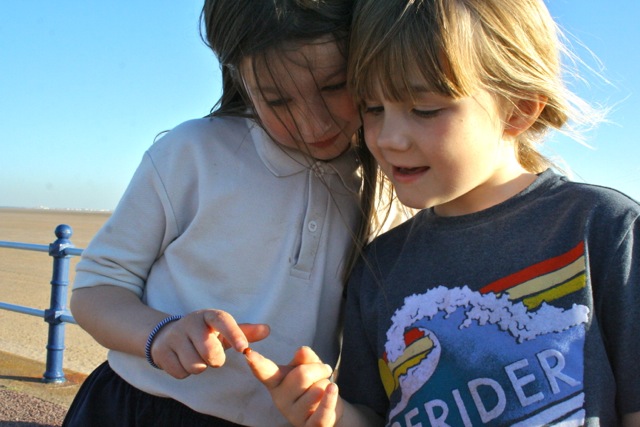Back when I was a whippersnapper, there were certain rites of passage we all went through.
Like the time my social worker parents dropped me off at a friend’s 15th birthday party with a four-pack of alcohol beer and a ‘talk’ about how alcohol wasn’t cool, and I could still be uber-cool while drinking Kaliber.
Obviously, I drank my way through half a litre of Bacardi, threw up violently for most of the party and the following three days (SO cool, right?) and didn’t touch Bacardi again for 20+ years.
We've probably all got a similar story, right?
Still, it sometimes feels as though the stakes for kids and alcohol are higher today than when I was a teenager. It feels as though more kids (and especially girls) are drinking to the point of oblivion, and putting themselves at huge risk. And I'm increasingly worried by how you protect daughters from all that goes with that.
Yesterday, I was invited to attend an event run by the charity Drinkaware, all about kids and alcohol. It was a great opportunity to find out some facts about the issue. For example:
- There are 20,000 kids under 18 admitted to A&E every year with alcohol-related illness
- The average age a British teen has their first unsupervised alcoholic drink is 13 years and 8 months
- Although fewer young teens overall are drinking compared to 20 years ago, those who are drinking, are drinking more – and that’s especially true of girls
- The earlier a child is exposed to alcohol in the home, the more likely they are to drink to risky levels when they are older
- The single biggest influence on children’s drinking habits and attitudes to alcohol isn’t marketing or peer pressure – it’s what children observe in the home
Research conducted over many years found that introducing kids to alcohol in the home, under supervision, does nothing to reduce the chances of them drinking to risky levels in later age – in fact, it does the opposite. Rather than recommending the ‘continental approach’, Drinkaware chief executive Chris Sorek says the advice now given by medical experts is simply to ‘keep childhood alcohol free’.
That doesn’t mean never talking to kids about alcohol. The advice from the experts at yesterday’s event was that it’s massively important to arm children with knowledge about alcohol and its effects.
It’s important that children understand the physical effect that alcohol has on their bodies and brains (under the age of 15, alcohol has a particularly damaging effect on things like memory and concentration, as well as removing inhibition). It’s important too, that kids know the mechanics of alcohol – what’s a measure, what’s a unit, what’s a safe versus unsafe amount of alcohol to drink.
The part of the session that really hit home for me, though, was about the importance of teaching our children to keep their friends safe.
When I downed that bottle of Bacardi, I was at a party with no parental supervision, surrounded by other 14 and 15 year olds. Had anyone become seriously ill, I’m not sure any of us would have known what to do.
One of the panellists at yesterday's event told a horribly sad story about a 16 year old who passed out, and her friends decided rather than letting her go home and get into trouble, they would lie her down on the bed to sleep it off while they stayed with her. Except the girl never woke up – she choked on her own vomit, and died. None of the kids knew the importance of keeping someone upright, or calling an ambulance.
A police officer at the event talked about kids who walked off cliffs while drunk, were hit by cars, were assaulted or injured – and these were kids from all backgrounds, all kinds of families. It's an issue that affects us all.
Just from watching Twitter over the past day or so, I think this is an incredibly emotive issue for many parents. Some of us don’t talk about alcohol at all – for fear of saying or doing the wrong thing. Some of us don’t talk about with kids because (naturally) our kids will be very quick to point out, “But you drink wine ALL THE TIME, Mummy”.
I also get the impression that parents feel they'll be judged if they say they allow their kids to drink alcohol, or their kids are drinking. But like most parenting issues, there's no one solution, no perfect way of doing things that will suit every child, and every family.
Personally, the best tips that I took away from yesterday were:
- Ensure kids have information about the physical impact that alcohol has on them as young people, which can be a lot more serious, because of their age
- Most kids don’t drink for the taste but for the effect. So giving them a good excuse not to drink can help – for example, enrolling kids in Saturday morning sports or drama clubs
- Drinking any amount of alcohol puts young people (and especially girls) at increased risk of robbery, sexual assault, violence and accidental injury. So it’s important to educate children on keeping their friends safe, and understanding they can call you for help no matter what the situation
If you want to know a bit more about some of the facts and figures in this post, or more advice on talking to kids about alcohol, there’s a great section on the Drinkaware website with lots of information.
Disclosure: travel expenses to attend this event were provided by Drinkaware.






